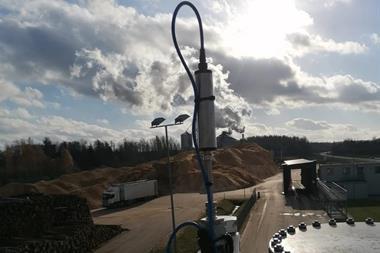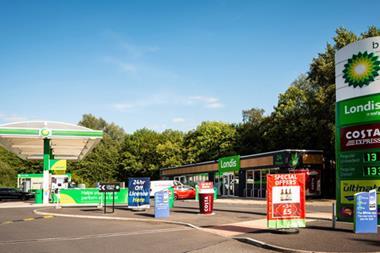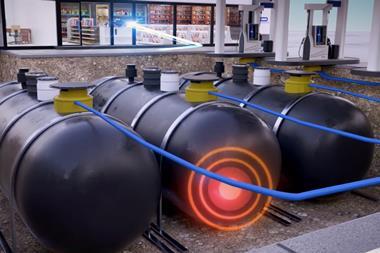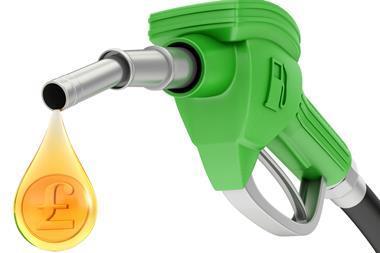After a tumultuous year in 2016, during which more than half the companies in the sector in the UK changed hands, and a new competitor entered the market, the new make-up in wet-stock management is now clear.
The newest player in wet-stock management in the UK is Suresite, a company that is already widely known to many forecourt operators because it handles card services for about 50% of the independent UK forecourt sector.
Keith Bevan, Suresite’s sales and marketing director, says the company was encouraged to move into the sector by dealers and in late 2016 it launched Suresite Wetstock, teaming up with Australian company Leighton O’Brien. He says: "We believe that we have the most advanced system in the industry yet, with the lowest cost to install, and with no replacement costs for any equipment throughout the life of a contract."
There are two service levels available with Suresite Wetstock Live and Core. Core is aimed at introducing sites to real-time wet-stock management, and offers a web-friendly reporting suite that allows data from one or more sites to be viewed any time, anywhere. Bevan says: "Core is ideal for those who wish to automate their wet-stock records and gain further insight into the operation of their site. It will send alerts to users, but it is then up to them to decide what action needs to be taken."
Live is Suresite’s fully managed wet-stock service with analysts using real-time data to monitor sites for operational and legal compliance issues. Bevan explains: "Other systems may claim to offer real-time service but there is often an in-built delay before notifying the operator of any stock discrepancies. Suresite Live is real-time with an immediate response. That immediacy could save a forecourt operator thousands of pounds.
"Suresite Live delivers all analysis and alarm reporting in the ’here and now’. This means that Suresite can react on behalf of the retailer immediately a discrepancy is detected and both the retailer and Suresite are able to monitor, using a web-based reporting suite, what we are doing, as we do it. It also offers ’best in class’ analytics and allows alerts to be set centrally rather than being dependent on tank gauge settings, giving users full control over trigger points for alerts."
Pilot sites using the new system began operating late last year, and since then there has been an influx of new sites on a month-by-month basis.
Bevan says all of the services include data feeds for order-free delivery options VMI (vendor managed inventory) or push logistics, where the supplier uses data to optimise deliveries and the ability to amend or create reports to meet the needs of the customer.
New services are also being developed for the system, and at present Suresite is finalising the ability to provide alerts for pumps/dispensers and pole signs. Bevan says this will provide real insight into not only usage, but also the causes of non-use.
The company is also about to start work on OPT (outdoor payment terminal) alerts to follow the growth in unmanned sites, and also meet the increase in customer requests for this type of information.
Meanwhile, the changes in ownership in the sector began in late 2015 when US company Wayne Fueling bought the UK wet-stock management company Vianet, with Vianet’s wet-stock management system becoming part of Wayne’s Clearview solution. Then in early 2016 another US group, Dover Corporation, acquired the product divisions of Tokheim Group, although Tokheim Solutions UK, which is the exclusive distributor in the UK, remained a separate company.
In May 2016, Dover followed this up with the acquisition of another UK wet-stock management provider, Fairbanks Environmental, and in June it acquired ProGauge. In the largest and fourth acquisition by Dover in 2016, it then agreed to buy Wayne Fueling Systems.
Dover, which already owned a fuel handling business, OPW, then combined these companies into a new business called Dover Fueling Solutions (DFS), comprising Wayne, Tokheim, ClearView, Fairbanks, ProGauge, and OPW’s Fuel Management Systems (OPW FMS).
DFS says that now these companies have joined forces it is ’business as usual’.
Amid the changes occurring in the rest of the market, the long-standing equipment and service provider Gilbarco Veeder-Root has continued to develop its Insite360 Wetstock Management Service, and is rolling out the latest generation of the TLS tank monitoring systems.
Describing developments in Insite 360, Rick Bardsley, product manager Insite360, Europe, says: "Since Advanced Variance Analysis (AVA) was introduced early in 2016, a number of new service modules and performance enhancements have been developed as part of our continuous improvement ethos, such as QuickChart fast-track tank calibration with remote chart upload to the ATG, and 24/7 alarm monitoring and escalation." Three new service modules have also been introduced: Inventory Forecasting (IF), Margin & Price Management (MM) and Document Management (DM).
Highlighting anomalies
AVA is a managed service that provides automated system alerts to highlight variance anomalies which are investigated by the Insite360 analyst team. Issues such as leaks, thefts, delivery shortages and meter drift are quickly revealed and can be resolved.
Gilbarco Veeder-Root is also converting customers from the TLS-350R tank monitoring system to its latest TLS-4 systems. Bardsley says the TLS-4 systems improve existing features and add new ones, such as Timed Sudden Loss (TLS), Vapour Collection Monitor and TLS-XB System Expansion. He says the TLS-4 systems provide the traditional automatic tank gauge benefits but in a better way, with large colour touch screens, web connectivity and remote access to data. Looking at the new features, he explains:
Timed Sudden Loss automatically alerts to fuel level changes when the station is closed and reports all events;
Vapour Collection Monitor integrates data from VR2 monitoring systems for centralised system monitoring and alarm management; and
TLS-XB System Expansion gives greater flexibility and capacity to monitor probes, leak sensors and control outputs.
Bardsley says there is a trend towards outsourcing wet-stock management; and using a single supplier for services and maintenance can provide synergies. Using such a service also demonstrates compliance and responsible risk management, helping companies avoid penalties or financial loss due to late detection.
Looking to the future, Bardsley says Gilbarco Veeder-Root is aiming to cater for the increasing interest in automatic temperature compensation (ATC) by developing a module which will analyse ATC performance at individual sites. Also in development are expanded data collection methods to reduce the cost of entry to wet-stock services, and new Insite360 services to aid fuel delivery planning.
While the merry-go-round of companies in the sector may have halted, it seems that developments in each company’s systems will ensure plenty of upgrades and new options will still be emerging.
A business critical system
Ramsay Macdonald, retail director, Certas Energy, believes that effective wet-stock management is crucial for dealers, and without it they could be putting the future of their business at risk. He says: "Certas Energy has implemented a real-time wet-stock management programme along with regular pump and tank testing across the whole of its estate. We work alongside companies such as Fairbanks, which also oversaw our investment in ATC (automatic temperature compensation). While ATC is not suitable in every situation, where we have introduced it the benefits have been immediate.
"The importance of disciplined wet-stock management cannot be overstated. After staff costs, wet-stock losses are potentially the next largest overhead. I would urge all dealers who do not feel that they have day-to-day control of their wet stock to take action now. Most available systems are very user friendly and easy to manage and they offer a huge peace of mind when you consider the consequences.
"Health and safety penalties alone can threaten the existence of an otherwise thriving business let alone the cost and upheaval of putting things right, product loss over a sustained period and any reputational damage."
Keith Bevan, Suresite’s sales and marketing director, adds: "Health & Safety directives will continue to evolve. The latest updates to the APEA ’Blue Book’ are due for release in the near future, and penalties for non-compliance will increase as will the cost of a tanker of fuel. This puts even greater pressure on dealers to ensure that the right level of safety protocols are in place, including the most competitive and efficient wet-stock management system."



























No comments yet